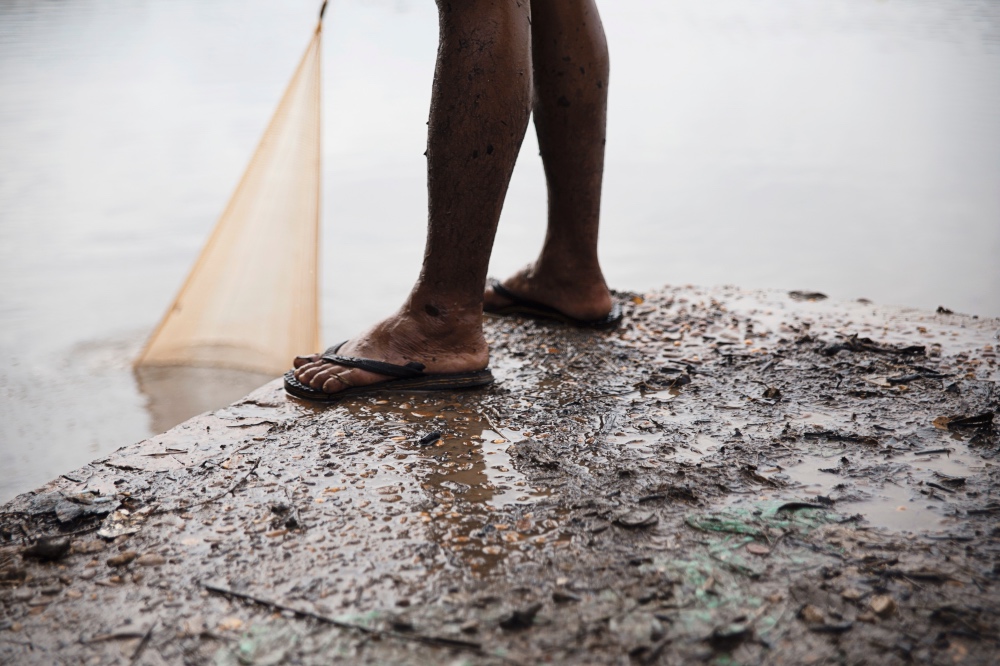
Against the backdrop of 40.3 million people estimated to be living in slavery, KIERAN GUILBERT, of Thomson Reuters Foundation, reports on five “gains” in the fight to eradicate slavery around the world last year…
With modern slavery and human trafficking hitting the headlines and police and prosecutors ramping up efforts to tackle these lucrative crimes, campaigners say the global drive to end slavery by 2030 is gathering pace.
From landmark data, new laws and action by the United Nations and big brands, here are five gains this year in the fight to eradicate the illegal trade in humans that is worth an estimated $US150 billion a year to enslavers and traffickers:
1) Landmark slavery data
Two major organisations working to tackle modern slavery this year collaborated to produce the first jointly agreed estimate of the number of people trapped in slavery worldwide.
About 40.3 million people were estimated to be living as slaves in 2016 – mostly women and girls – in forced labour and forced marriages, according to the UN International Labour Organization and human rights group Walk Free Foundation.
This figure marks the first time the groups collaborated on an international estimate, having previously used different data, definitions and methodologies to reach their own figures.
Anti-slavery campaigners say the new number sets a baseline in pursuit of the UN global goal of ending slavery by 2030.

TRAPPED: About 40.3 million people were found to be living in slavery in 2016. PICTURE: Peter Hershey/Unsplash.
2) Leading with laws
Taking Britain’s lead, which in 2015 became the first country to pass a law requiring companies to disclose what they have done to ensure their supply chains are slavery free, other major nations from France to the Netherlands are following suit.
Under Britain’s Modern Slavery Act, businesses with a turnover of more than £36 million ($US47.5 million) must produce an annual statement outlining the actions they have taken to combat forced labour within their supply chains.
Taking Britain’s lead, which in 2015 became the first country to pass a law requiring companies to disclose what they have done to ensure their supply chains are slavery free, other major nations from France to the Netherlands are following suit.
In France, a law was passed which requires companies with more than 5,000 employees in the country, or 10,000 worldwide, to publish plans outlining steps to root out human rights and environmental violations from their supply chains.
The Dutch parliament proposed a law which would see firms having to determine if child labour exists in their supply chains, and set out an action plan on how to combat it.
Australia is mulling over anti-slavery laws similar to Britain’s, and is set to table draft legislation in early 2018.
3) United Nations calls for crackdown
The UN Security Council adopted a resolution urging tougher action to crack down on human trafficking and modern slavery worldwide, and this month called for an investigation into reports of African migrants being sold as slaves in Libya.
Its resolution called on countries to adopt anti-trafficking laws, ramp up efforts to investigate and dismantle criminal networks, and provide greater support for survivors of slavery.
The 15-member council also said the apparent sale of migrants into slavery in lawless Libya may amount to crimes against humanity, after footage appearing to show Africans being auctioned there.
4) Big brands ramp up action
Some of the world’s biggest brands, from Adidas and Apple to Intel and Walmart, are delving deep into their supply chains and publicly speaking out about their efforts to stamp out slavery.
German sportswear giant Adidas and US technology company Intel were among the winners of the second Thomson Reuters Foundation Stop Slavery Award, for their efforts to identify, investigate and root out forced labour.
Modern slavery is increasingly under the spotlight, piling regulatory and consumer pressure on firms to disclose what they are doing to ensure their supply chains are slavery-free.
US tech giant Apple, and Walmart, the world’s largest retailer are among the most high-profile brands who say they are working with their suppliers, and increasingly using technology, to help improve the lives of millions of their workers globally.
5) Flight crews and health workers join fight
From the flight crews of the world’s leading airlines to doctors and nurses working for Britain’s state-run National Health Service, private and public sector employees are being trained to recognise and respond to modern slavery.
At least 70,000 US airline staff have been trained to spot traffickers and their victims under the Blue Lightning scheme, launched in 2013 with the backing of JetBlue and Delta.
Dubai-based Emirates, the world’s largest longhaul carrier, AirAsia, the biggest budget airline in Asia, and Aeromexico are among airlines that have set up training for their staff to learn how to deal with human trafficking.
In Britain, healthcare professionals are being trained to recognise symptoms and indicators of modern slavery, from trauma and sexually transmitted diseases to pregnancy and malnutrition.






